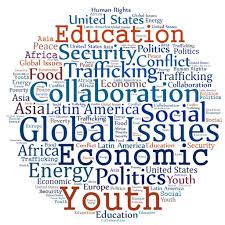Local Wisdom, Global Impact: Indigenous Knowledge in Sustainable Development
The pursuit of global poverty alleviation and sustainable development necessitates a paradigm shift towards inclusivity and the integration of diverse knowledge systems. This article examines the crucial role of Indigenous Knowledge (IK) – defined as the cumulative body of knowledge, practices, and beliefs developed by indigenous and local communities over generations through their interaction with their environment – in achieving sustainable development goals. We will explore how the application of IK principles, in conjunction with modern scientific approaches, can contribute to a more equitable and environmentally responsible future. This analysis draws upon relevant theories such as the Theory of Planned Behavior, which posits that intentions to act sustainably are influenced by attitudes, subjective norms, and perceived behavioral control, and the concept of environmental justice, highlighting the inherent rights of indigenous communities to participate in decisions that affect their lands and resources.
1. IK as a Foundation for Sustainable Resource Management: Indigenous communities often possess sophisticated techniques for sustainable agriculture, including crop rotation, agroforestry, and water conservation methods honed over centuries of interaction with their ecosystems. Applying principles of ecological economics, which emphasizes the interdependence between human economies and natural ecosystems, shows how these practices can enhance long-term productivity and resilience in the face of climate change. For example, analyzing the success of traditional farming techniques in specific regions allows for the adaptation and scaling of these methods to wider contexts.
2. Preserving Biodiversity and Cultural Heritage: The preservation of IK is intrinsically linked to the safeguarding of cultural diversity. Ethnobotany, the study of the relationship between people and plants, demonstrates the profound knowledge indigenous communities hold about medicinal plants and their sustainable harvesting. This knowledge contributes not only to healthcare but also to the conservation of biodiversity, illustrating the interconnectedness between cultural and ecological sustainability. Furthermore, the application of anthropological research methods helps document and protect this valuable heritage.
3. Climate Change Adaptation and Mitigation: Indigenous communities often have profound understanding of local climate patterns, disaster risk reduction, and adaptive strategies developed through generations of lived experience. Applying disaster risk reduction frameworks, such as the Sendai Framework for Disaster Risk Reduction, allows for the integration of IK into comprehensive disaster preparedness and response plans. This indigenous knowledge can inform the development of effective climate change adaptation and mitigation strategies.
4. Empowerment and Inclusive Governance: Recognizing and integrating IK requires a shift towards participatory decision-making processes. Applying principles of participatory rural appraisal (PRA) methodologies allows for the meaningful engagement of indigenous communities in development planning and resource management. This empowerment fosters social justice and contributes to more equitable outcomes.
5. Bridging the Gap: Knowledge Exchange and Capacity Building: Effective collaboration between indigenous communities and external stakeholders requires a commitment to knowledge exchange and capacity building. This involves employing transdisciplinary research approaches – integrating diverse perspectives from different disciplines – to effectively translate and apply IK within wider development contexts. Investment in education and training programs that respect indigenous ways of learning and knowing are crucial for the preservation and transmission of IK to future generations. This approach ensures the continuity of invaluable traditional practices.
6. Ethical Considerations and Indigenous Rights: The integration of IK must always prioritize the rights and self-determination of indigenous communities. The application of the Free, Prior and Informed Consent (FPIC) principle, a cornerstone of the UN Declaration on the Rights of Indigenous Peoples, is paramount to ensure ethical engagement and avoid the exploitation of cultural heritage. This necessitates a commitment to respecting land tenure rights and cultural autonomy.
7. Case Studies and Best Practices: Numerous case studies highlight the successful integration of IK into sustainable development initiatives. Analysis of these examples reveals common success factors, such as strong community engagement, respect for traditional knowledge systems, and collaborative partnerships. These case studies can serve as valuable models for replication and adaptation in other contexts.
8. The Role of Communication and Storytelling: Communicating the value of IK requires innovative approaches to knowledge sharing. Indigenous storytelling traditions can be harnessed to engage broader audiences and foster a deeper appreciation for the wisdom embedded within these cultural practices. This builds empathy and inspires action towards sustainability.
Conclusions and Recommendations: The integration of Indigenous Knowledge into sustainable development efforts is not merely a matter of cultural preservation; it is a critical imperative for achieving truly sustainable and equitable outcomes. This requires a paradigm shift, moving away from top-down approaches to more collaborative and participatory models. Further research should focus on developing robust methodologies for evaluating the effectiveness of IK-informed interventions and scaling successful projects to wider contexts. Moreover, future initiatives should prioritize ethical considerations, ensuring the equitable sharing of benefits and the protection of indigenous rights. By actively engaging with and learning from indigenous communities, we can harness their invaluable knowledge to create a more resilient and just future for all.
Reader Pool: Considering the ethical and practical complexities involved in integrating IK into development initiatives, what are the most effective strategies for ensuring the equitable sharing of benefits and the protection of indigenous rights in such collaborations?





No comments yet. Be the first to share your thoughts!